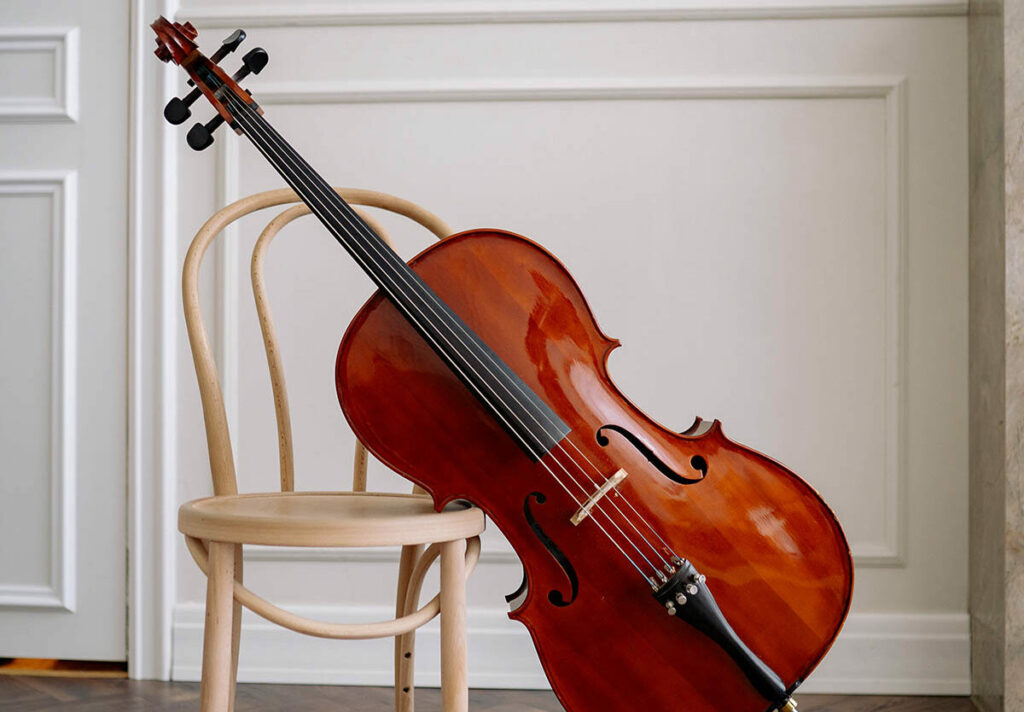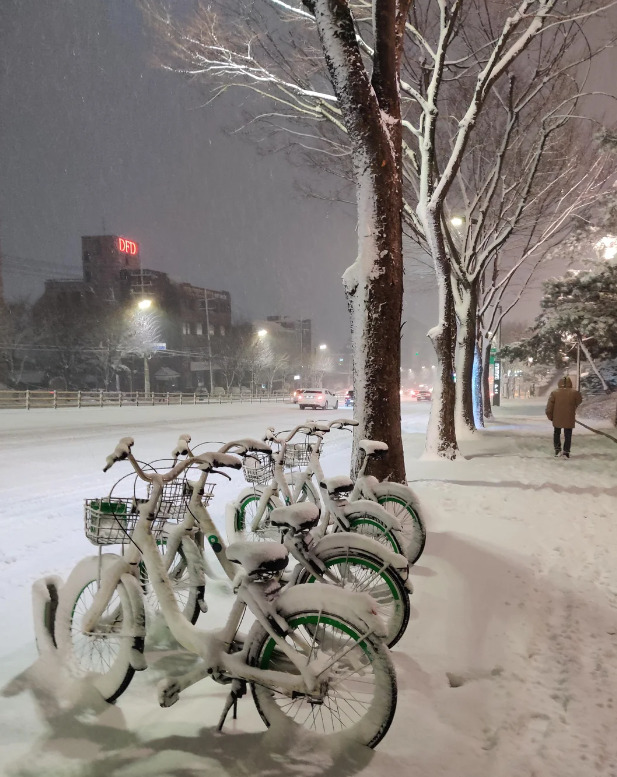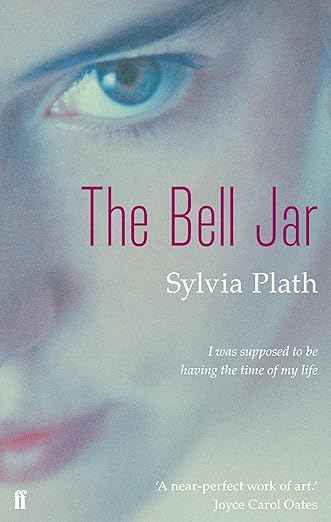Jin-Ah sat by her bedroom window, watching the snow fall softly over Seoul, the city lights twinkling dimly through the delicate white mesh curtain. She could almost feel the snowflakes landing silently on the streets below, muffling the usual sounds of the city. She was twenty years old, on the cusp of adulthood, yet felt like a stranger to herself. In the hush of her room, the silence felt like a reminder of everything missing, of the life she watched from afar but couldn’t touch and had no control over,
No boyfriend, no close friends, and no idea what it felt like to live without the weight of her parents’ ambitions pressing down on her shoulders. Her life had been shaped, not by her dreams, but by their expectations, layer upon layer, until she was buried beneath them. Her reflection in the frosty window stared back with tired, empty eyes, her reflection looking like a ghost of what she once saw herself as. The only thing she had ever truly loved was her cello, though even that had become another symbol of her failure in her parents’ eyes. Her talent, which once brought her joy, was now just another item on a long list of responsibilities she could never seem to fulfill completely.
Jin-Ah’s love for the cello had begun when she was five, the memory stuck in her mind as if it happened yesterday. Her father had guided her small hands to the neck of the instrument, his own hands firm and demanding as he placed the bow in her grasp. “This will make you strong,” he’d said, his voice carrying a conviction that she, even at that young age, somehow knew she was expected to absorb. “You will learn to play with grace and perfection.” At first, the cello’s deep, rich sound fascinated her; it felt like magic that she could create music with her tiny hands. But as the years went by, her father’s words—grace and perfection—grew heavy, transforming the cello from an object of wonder to a relentless obligation.
Day after day, she would sit on the hard, wooden stool, her back straight and tense as she practiced under his watchful gaze. His approval was rare, a slight a nod here, an almost imperceptible smile there. Her fingers would ache from pressing down on the cold, unyielding strings, her wrists burning under the strain of the bow, yet she never complained. Complaining wasn’t an option; it was a weakness in her father’s eyes. The cello had taught her discipline, her father said. It had molded her into a disciplined, dutiful daughter, just as he’d planned. Parental affection wasn’t even an option.
As she grew older, the demands only intensified. Jin-Ah became accustomed to a schedule so rigorous it left no space for rest or imagination. Her days blurred together, a pattern of school, cello practice, study sessions in advanced maths, and more practice, all on a loop, leaving her with no time to breathe, let alone discover who she was. Her parents were proud of her accomplishments—awards, certificates, perfect grades—but Jin-Ah felt strangely detached from each one, as though they were rewards given to someone else, someone her parents loved more. The cello, once her solace, now felt like a bitter reminder of everything she could never live up to. She could play any piece of music with perfect precision, her fingers dancing over the strings, but each note felt hollow, devoid of life. After every performance, she would look up at her parents, scanning their faces for a hint of pride, only to find their expressionless nods of approval.
At school, Jin-Ah had tried to make friends, reaching out to her classmates in moments of vulnerability. But her peers seemed just as burdened, caught up in their own cycles of pressure and competition. To them, she was another rival, a threat rather than an ally. Conversations were brief and impersonal, filled with polite nods and hollow promises to meet up, none of which ever materialized. The isolation was suffocating, and sometimes, Jin-Ah wondered if her classmates felt the same aching emptiness she did, the same yearning for something real, something that would give their lives meaning beyond the expectations that had been thrust upon them.
Then, one winter night, after a grueling day of practice, she finally reached her breaking point. It was a weariness that went beyond physical exhaustion, a despair so deep it felt woven into the fabric of her soul. Jin-Ah looked around her room, taking in the pristine order of everything within it: the shelves filled with awards and certificates that no longer meant anything to her, the books lined up in perfect rows, the bed that she hardly ever slept in before midnight, her cello resting in its case like a silent, indifferent judge. She couldn’t remember the last time she had done something purely for herself, something that brought her even a sliver of joy.
That night, Jin-Ah stood alone in her small, dimly lit bathroom, clutching a handful of her mother’s sleeping pills. She had filled the bathtub with warm water, watching the steam rise and swirl in the air, a gentle fog that obscured her reflection in the mirror. Her fingers, trembling slightly, traced delicate patterns on the water’s surface, as if testing the boundaries between this world and the next. She thought about how peaceful it might be to finally let go, to drift away from the demands and disappointments that had haunted her for so long. The silence, she imagined, would be absolute, a balm to her tired, restless soul.
But as she sat on the edge of the tub, her mind drifted back to a memory, faint but persistent. It was from years ago, one quiet evening when she was young, still learning her way around the cello. She had been practicing alone in the living room, and for the first time, she played a melody that moved her. It was imperfect, raw, and full of mistakes, but it was hers. She remembered the way it felt—a strange, fragile sense of joy, as if she had discovered a small piece of herself, hidden within the music. The memory flickered in her mind like a fragile candle in the dark, a glimmer of hope in the shadows of her despair.
She sat there, the pills clutched in her hand, her vision blurring with the weight of her tears. The ache inside her didn’t disappear, but the memory gave her pause, a moment of clarity in the fog of her sadness. Her fingers trembled as she slowly placed the pills back into the bottle. Instead of falling into the water, she pulled herself back, feeling the warmth of the bath fading beneath her fingertips.
Jin-Ah returned to her room and reached for her cello, lifting it from its case with a gentleness she hadn’t felt in years. She positioned it carefully, as though reuniting with an old friend, and began to play. This time, she didn’t aim for perfection or grace. She let the music flow without restraint, letting her fingers stumble, allowing the notes to twist and turn in unexpected ways. It was messy, vulnerable, and fully her own. The sound filled her room, filling the void that had haunted her for so long.
As the music faded into the night, she felt a shift within her—a faint but unmistakable sense that maybe, just maybe, there was something beyond the weight of her parents’ dreams. For the first time in years, Jin-Ah allowed herself to dream of a different future, one where she could discover her own voice, not through flawless technique or cold discipline, but through the quiet strength that had carried her this far. In the quiet of her room, with snow falling outside, Jin-Ah felt the fragile beginnings of a new resolve. She would stay, for now, and perhaps, in time, she might find her way forward.



